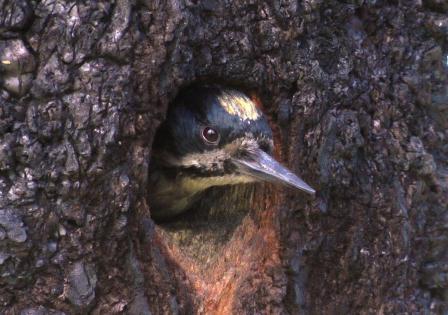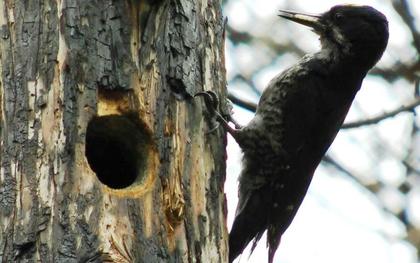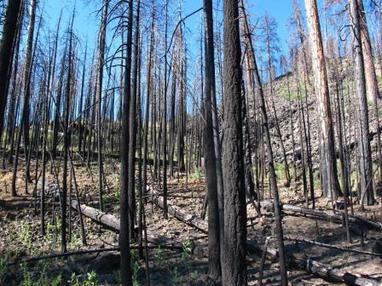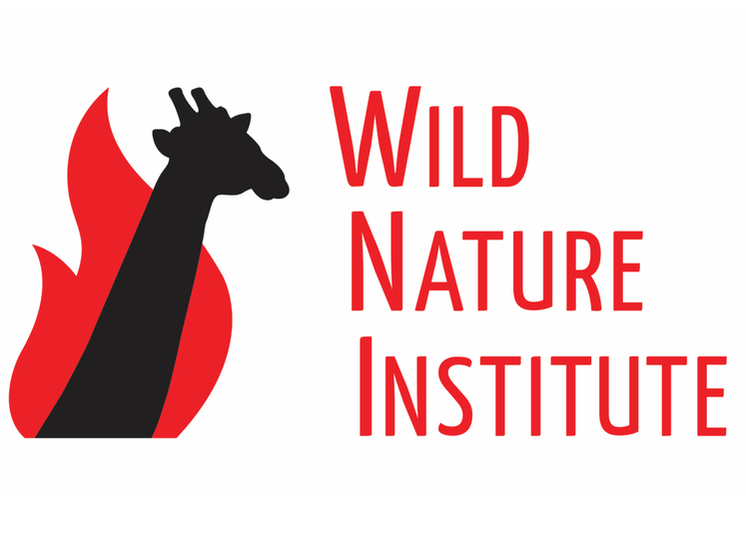|
Four conservation organizations – John Muir Project, Center for Biological Diversity, Blue Mountains Biodiversity Project, and Biodiversity Conservation Alliance – just petitioned the federal government to list the Black-backed Woodpecker in California's Sierra Nevada, Oregon's Eastern Cascades, and the Black Hills of Wyoming and South Dakota as threatened or endangered under the Endangered Species Act. This woodpecker thrives best in heavily burned forests because its main food source is long-horned and jewel beetle larvae. These beetles flock to a forest on fire to lay their eggs within the freshly dead and dying burned trees: shortly thereafter Black-backed Woodpeckers arrive to feast on the superabundance of nutritious larvae. Black-backed Woodpeckers are better able to bore into very hard, recently dead trees than any other woodpecker in the world! Black-backed Woodpeckers bore into tree trunks to get at the big, delicious larvae within, but they also use their specialized excavating abilities to create nesting holes. A cavity in the hardest dead trees in the most heavily burned forests is an ideal place for woodpeckers to raise their young because it is safe from predators. Moreover, when the woodpeckers’ chicks have fledged, other cavity nesters like bluebirds and house wrens raise their own chicks in the abandoned holes. These secondary cavity nesters cannot excavate their own holes, relying on woodpeckers to do the work – making woodpeckers keystone species in the forests where they live. Widespread post-fire logging and fire suppression have reduced the amount of suitable habitat for all the many species that thrive in burned forests, the most iconic and specialized of which is the Black-backed Woodpecker. The Wild Nature Institute supports the conservation of burned forest habitat so the Black-backed Woodpecker can continue to play its critical ecological role in the web of life.
0 Comments
Your comment will be posted after it is approved.
Leave a Reply. |
Science News and Updates From the Field from Wild Nature Institute.
All Photos on This Blog are Available as Frame-worthy Prints to Thank Our Generous Donors.
Email Us for Details of this Offer. Archives
July 2024
|
|
Mailing Address:
Wild Nature Institute PO Box 44 Weaverville, NC 28787 Phone: +1 415 763 0348 Email: [email protected] |
|




 RSS Feed
RSS Feed
